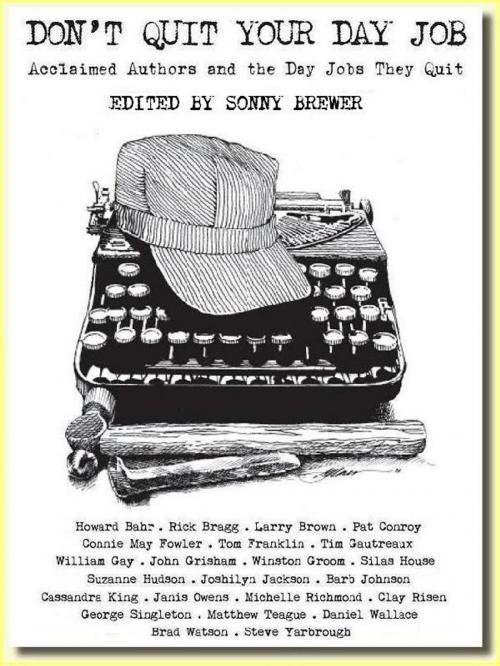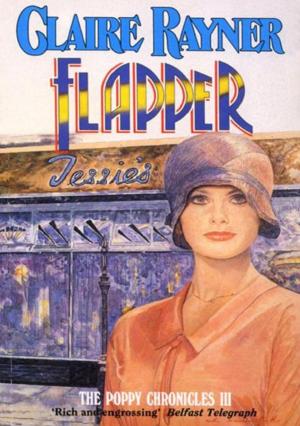Don't Quit Your Day Job
Acclaimed Authors and the Day Jobs They Quit
Nonfiction, Entertainment, Drama, Anthologies, Biography & Memoir| Author: | Sonny Brewer | ISBN: | 9781849821292 |
| Publisher: | MP Publishing | Publication: | December 15, 2009 |
| Imprint: | MP Publishing | Language: | English |
| Author: | Sonny Brewer |
| ISBN: | 9781849821292 |
| Publisher: | MP Publishing |
| Publication: | December 15, 2009 |
| Imprint: | MP Publishing |
| Language: | English |
P. J. ORourke said, “Creative writing teachers should be purged until every last instructor who has uttered the words Write what you know is confined to a labor camp… The blind guy with the funny little harp who composed The Iliad, how much combat do you think he saw?” Like ORourke, William Faulkner had his own take on the Other Commandment for writers, the one that goes, “Thou shalt not quit thy day job”. Faulkner, who won the 1949 Nobel Prize for Literature, had, twenty-five years before, worked at the post office in his hometown of Oxford, Mississippi. Mr Faulkner was known to say, “One of the saddest things is that the only thing a man can do for eight hours, is work. You cant eat eight hours a day, nor drink for eight hours a day, nor make love for eight hours”. He must have been determined to give something else (writing, we may assume, perhaps a glass of whisky on the side) a whirl when he tendered his resignation to the postmaster. “I reckon Ill be at the beck and call of folks with money all my life”, he said, “but thank God I wont ever again have to be at the beck and call of every son of a bitch whos got two cents to buy a stamp." The authors in this book have tried their hands at some of the same jobs you have held, or still keep. Theyve worked on the railroad, busted rocks with a sledgehammer, fought fires, wiped tables, soldiered and carpentered and spied, delivered pizzas, lacquered boat paddles, counted heads for the church, sold underwear, and delivered the mail. Theyve driven garbage trucks. And like William Faulkner before them they have quit those day jobs. And like Faulkner they write. They tell good tales. If you wonder what work preceded their efforts to produce a great pile of books, if you would like to know how they made the transition to, as William Gay said, “clocking in at the culture factory”, then this is the book youve been waiting for...
P. J. ORourke said, “Creative writing teachers should be purged until every last instructor who has uttered the words Write what you know is confined to a labor camp… The blind guy with the funny little harp who composed The Iliad, how much combat do you think he saw?” Like ORourke, William Faulkner had his own take on the Other Commandment for writers, the one that goes, “Thou shalt not quit thy day job”. Faulkner, who won the 1949 Nobel Prize for Literature, had, twenty-five years before, worked at the post office in his hometown of Oxford, Mississippi. Mr Faulkner was known to say, “One of the saddest things is that the only thing a man can do for eight hours, is work. You cant eat eight hours a day, nor drink for eight hours a day, nor make love for eight hours”. He must have been determined to give something else (writing, we may assume, perhaps a glass of whisky on the side) a whirl when he tendered his resignation to the postmaster. “I reckon Ill be at the beck and call of folks with money all my life”, he said, “but thank God I wont ever again have to be at the beck and call of every son of a bitch whos got two cents to buy a stamp." The authors in this book have tried their hands at some of the same jobs you have held, or still keep. Theyve worked on the railroad, busted rocks with a sledgehammer, fought fires, wiped tables, soldiered and carpentered and spied, delivered pizzas, lacquered boat paddles, counted heads for the church, sold underwear, and delivered the mail. Theyve driven garbage trucks. And like William Faulkner before them they have quit those day jobs. And like Faulkner they write. They tell good tales. If you wonder what work preceded their efforts to produce a great pile of books, if you would like to know how they made the transition to, as William Gay said, “clocking in at the culture factory”, then this is the book youve been waiting for...















